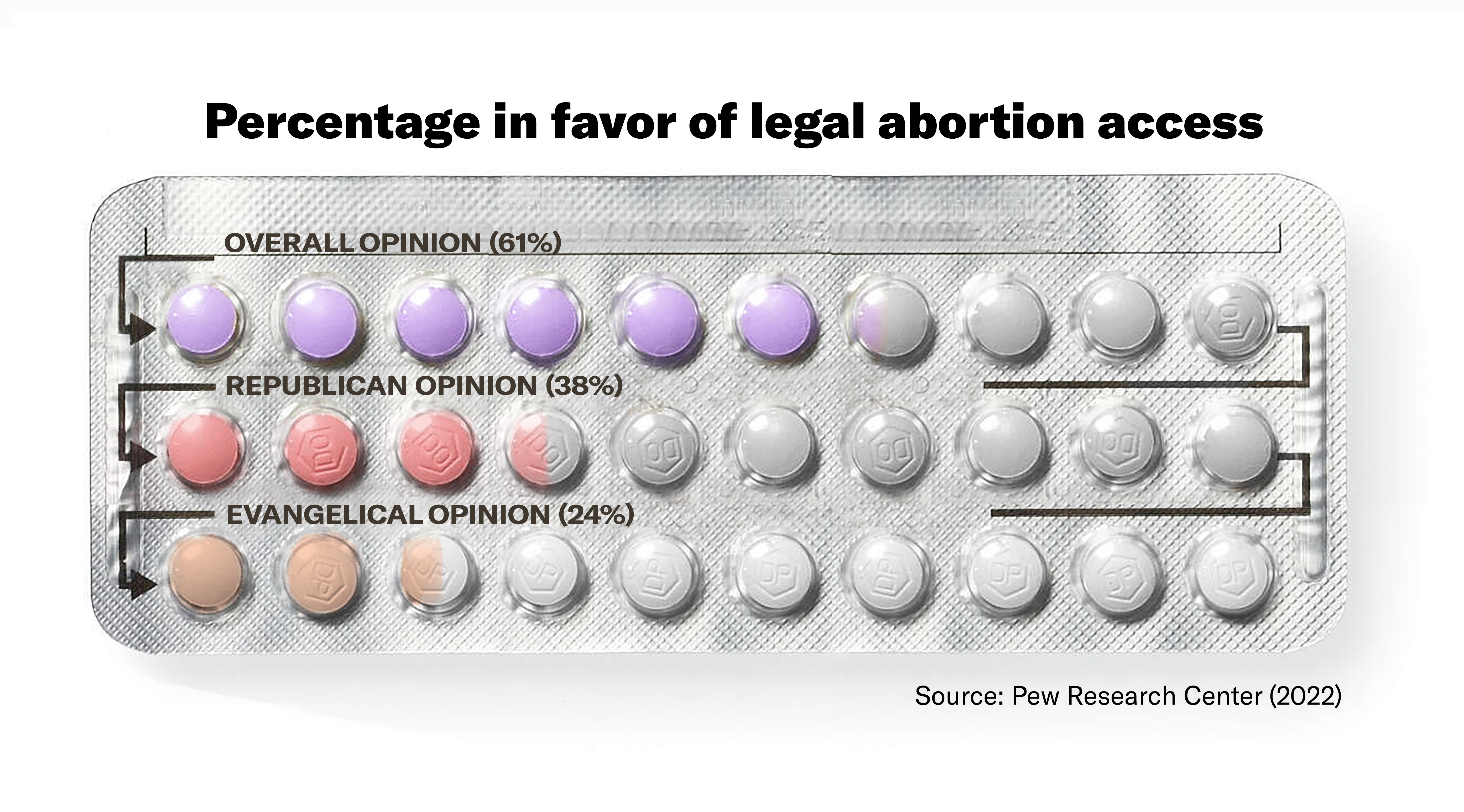This past June, Florida Governor Ron DeSantis celebrated the passage of his Parental Rights in Education bill. Dubbed “Don’t Say Gay” by its opponents, the Act imposes strict regulations on the discussion of sexual orientation and gender identity in Florida public schools. Weeks later, the Supreme Court issued its ruling in Dobbs v. Jackson, overturning Roe v. Wade and clearing the path for state-level abortion bans. In his concurring opinion, Supreme Court Justice Clarence Thomas argued that the Court “should reconsider” other fundamental cases, including Obergefell v. Hodges, the 2015 case legalizing same-sex marriage.
At the same time, state-level Republicans ramped up attacks on the transgender community, particularly with legislation targeting trans youth. In 2023 alone, over 150 bills have been proposed in state legislatures that regulate and restrict the lives of trans people, targeting everything from access to gender-affirming care to the use of pronouns in schools to requiring teachers to inform parents of their child’s sexual orientation against the child’s will.
These moves all point to the same conclusion: The GOP is obsessed with sex. To an outsider, conservatives’ fascination with sex and sexuality seems contradictory.
The origins of this trend lie in Republicans’ mutually beneficial relationship with the religious right and the rise of the Moral Majority in the 1980s. However, while this movement molded the GOP into the juggernaut it is today, progressive forces threaten the efficacy of the family values crusade.
In the 1970s, conservative activists like Jerry Falwell Sr., pastor and longtime president of Liberty University, watched with horror as the IRS cut funding to racially segregated schools and Roe v. Wade codified a woman’s constitutional right to an abortion. Conservatives were losing, and they needed a new constituency that would mobilize for Republican causes nationally. That constituency presented itself on election night in the 1978 midterms. In the Iowa senatorial race, a pro-life Republican defeated the Democratic incumbent, Senator Dick Clark, by fewer than 27,000 votes. The cause of this pro-life insurrection? Catholic anti-abortion activists had passed out 300,000 anti-Clark flyers in church parking lots across the state, swaying tens of thousands of voters. The abortion issue had single-handedly won a Senate seat for the GOP, giving Jerry Falwell the watertight formula he needed to mobilize religious voters.
Falwell went on to found the Moral Majority, an organization that pledged to restore Christian values to a country whose morals were rapidly fading. The group endorsed Ronald Reagan in his 1980 presidential campaign, pushing him to take anti-abortion stances that would energize their base, including a pledge “to appoint only those opposed to abortion” to the Supreme Court. By stoking the flames of the abortion issue, Falwell was able to organize a powerful new Republican constituency on the back of “family values” rhetoric.
In the 1980s, abortion had to be banned to save unborn children. Today, transgender students are barred from using their bathroom of choice in the name of protecting their classmates from harm. Clearly, Republicans rely on a ready-made, fill-in-the-blank platform of references to the protection of youth and the family to present to voters. All the while, the GOP poses as the protector of a group to whom it is not yet electorally accountable.
The historical benefits of this strategy are undeniable. The Republican Party has won six of the 11 presidential elections since 1980, with electoral landslides in 1980, 1984, and 1988. At the state level, sensationalizing the issue of LGBTQ+ rights in public schools allowed DeSantis to flip school boards across Florida, win re-election, and lock down Florida as a red state. The religious right is as energetic now as they were in 1978. Grassroots organizers rally votes at their local churches while pastors deliver sermons railing against contraception.
The GOP has positioned itself against the societal forces of progress. With time, this strategy will become less and less effective. Two factors spell doom for the anti-sex GOP: the emergence of a progressive youth vote and growing national support for the rights of historically marginalized groups. Just last year, voters in deep-red Kansas overwhelmingly voted to reject an abortion ban amendment.
In 2022, voters under 30 preferred Democrats by a 28-point margin. In races in which the Democratic candidate won by a slim margin, the youth vote was an essential factor. Senator John Fetterman of Pennsylvania and Governor Tony Evers of Wisconsin won their races by slim margins, thanks to the 70 percent of young voters who supported them. Youth turnout in the past two midterms has been higher than at any point in the past three decades. Generation Z is not only more politically active than previous generations, but they are also exceptionally progressive. Young voters typically list abortion as one of the issues that most concerns them. Evidently, the GOP’s culture war is mobilizing voters—just not the ones they had hoped.
Folk wisdom suggests that as we age, our views shift to the right. However, a mounting pile of evidence suggests that this progressive youth “bubble” will withstand time. A 2020 University of Chicago study found that while there is “some evidence of age-driven movement toward the right,” Americans generally have “[stable] political orientations over the course of [their] lifespan[s].” While Gen Z’s political coming-of-age gives hope to progressive activists, they don’t have to bide their time waiting for younger generations to line up at the ballot box. Among older generations of Americans, support for once-controversial policies such as same-sex marriage has grown over time. In 2004, only 29 percent of US adults above the age of 55 supported same-sex marriage. Only 17 years later, support among the same group had risen to 60 percent. Republicans fought against the legalization of gay marriage in the 1990s and 2000s; today, that rhetoric has all but disappeared from their party platform. The GOP’s decades-long war on sexual liberation is unsustainable. Without a change in tactics, the fire igniting the Republican base will soon burn out.
